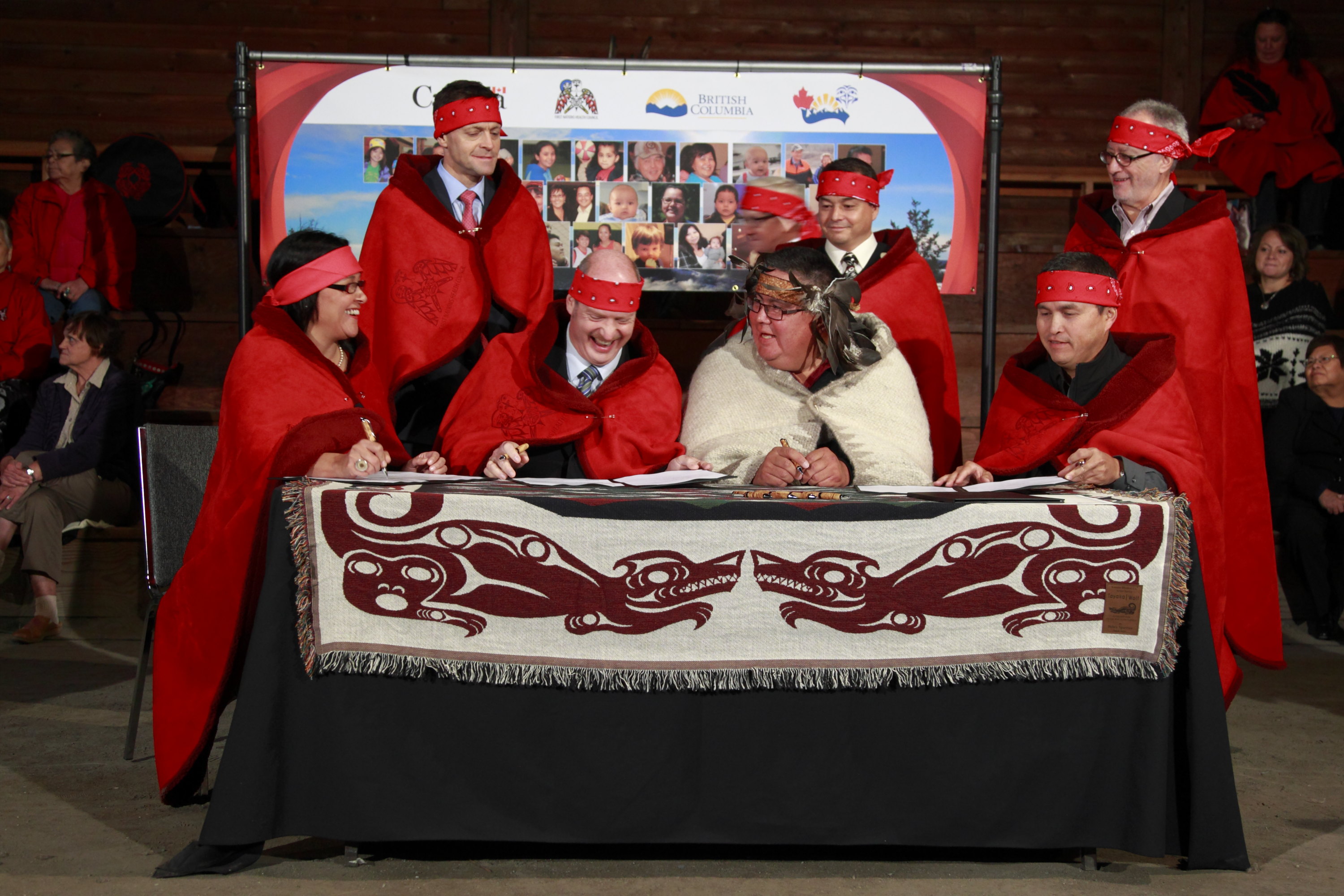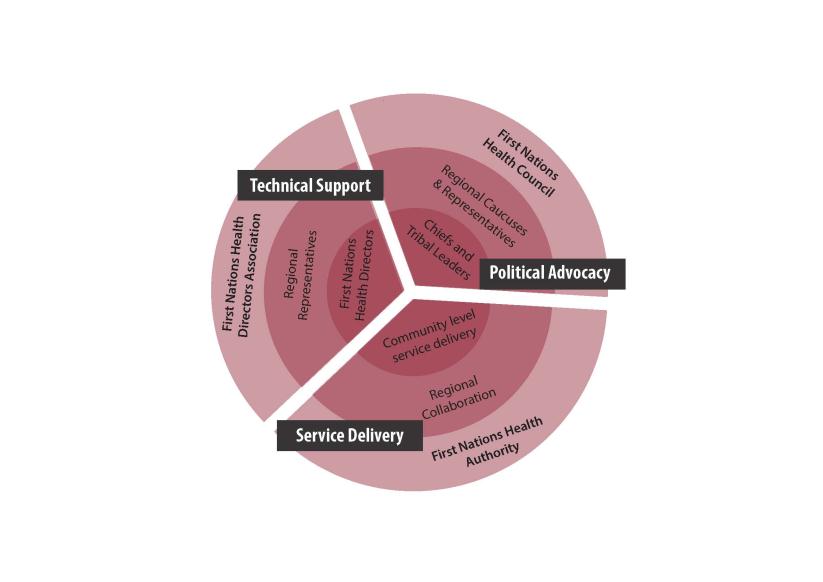 A New Relationship
A New Relationship
In 2005, BC First Nations political leadership came together and agreed to work cooperatively, signing the Leadership Accord. This Accord formalized a working relationship among the three main First Nations political organizations in BC (the BC Assembly of First Nations, First Nations Summit, and Union of BC Indian Chiefs). This working relationship between the three organizations is referred to as the First
Nations Leadership Council (the Leadership Council).
The Leadership Council entered into the New Relationship (2005) with the Province of British Columbia, which committed the signatories to:
"…restore, revitalize and strengthen First Nations and their communities and families to eliminate the gap in standards of living with other British Columbians, and substantially improve the circumstances of First Nations people in areas which include: education, children and families, and health…".
At the 2005 First Ministers meeting in Kelowna, the Leadership Council, Government of Canada, and the Province of BC signed the Transformative Change Accord. The Accord committed the signatories to establish a new relationship based on mutual respect and recognition and to close the social and economic gaps between First Nations and other British Columbians in several areas including: relationships, education, health, housing & infrastructure, and economic opportunities. There was agreement among the parties that the approach to closing these gaps must take into account the Social Determinants of Health.
The Leadership Council and the Province of BC then entered into a bilateral agreement in November 2006 to address the health area of the Accord. The Transformative Change Accord: First Nations Health Plan (TCA: FNHP) includes 29 action items, including health promotion/disease and injury prevention, health services, and performance tracking. The creation of the First Nations Health Council is identified as the first action item in the Transformative Change Accord: First Nations Health Plan.
The federal government joined BC and the Leadership Council in signing an MOU in November 2006 that committed the parties to develop a Tripartite First Nations Health Plan (the Plan). Agreed to in June of 2007, the Tripartite First Nations Health Plan included the original 29 action items from the TCA: FNHP as well a commitment to explore a new administrative arrangement for the delivery of health services to First Nations in BC, with the aim of increasing First Nations control over health services to their own peoples.
A New Governance Partnership and Administrative Arrangement
The Tripartite First Nations Health Plan calls for the development of a new First Nations health governing structure to increase First Nations decision-making in matters of health.
This new structure includes four components:
» First Nations Health Council (FNHC): Advocates and supports BC First Nations and oversees the negotiations of the development of a First Nations Health Authority.
» First Nations Health Authority (FNHA): Will assume responsibility for federal health services currently delivered by First Nations and Inuit Health and agreed upon provincial services.
» First Nations Health Directors Association (FNHDA): Provides voice for the collective experience of BC First Nations Health Directors and Managers and will advise the new FNHA on policy direction and service delivery models.
» The Tripartite Committee on First Nations Health (TCFNH) is comprised of the Deputy Ministers of Provincial Health Ministries, Deputy Minister of First Nations and Inuit Health, BC Region, and the CEO's of BC's 6 Health Authorities. The TCFNH is responsible for enacting system change and developing a reciprocal accountability framework to ensure that health services better meet the needs of BC First Nations.

Between 2007 and 2010 a great deal of progress has been made in development of each these areas.
• First Nations Health Blueprint for BC (July 15, 2005)
• Transformative Change Accord (November 25, 2005)
• Transformative Change Accord: First Nations Health Plan (November 26, 2006)
• Tripartite First Nations Health Plan Memorandum of Understanding (November 27, 2006)
• Tripartite First Nations Health Plan (June 11, 2007)
• Tripartite Basis for a Framework Agreement on Health Governance (July 26, 2010)
• Tripartite Framework Agreement on First Nation Health Governance (October 13, 2011)
• Health Partnership Accord (December 17, 2012)
• Canada Funding Agreement and Sub‑Agreements to the Tripartite Framework Agreement on First Nation Health Governance (2013)

Redesigning Health Service Delivery
Through a clear vision, leadership and planning we can influence, facilitate and manage change, and not allow change to manage us. Our leaders told us to take good care to navigate this change carefully and steadily towards our intended destination, at a pace that suits our needs.
First Nations have created two stages of this change management process – Transition and Transformation.
• We are currently in the Transition stage of the work. During this stage, the Framework Agreement is implemented, with particular focus on the activities to take control of the assets, people and resources of FNIHB‑BC Region and take the time to adjust to that transfer of FNIHB.
• The next, ongoing, stage is Transformation. In that stage, the existing federal programs and services will be upgraded and reoriented to meet our needs and First Nations philosophies of a wellness system.
Learn more about Transition and Transformation

